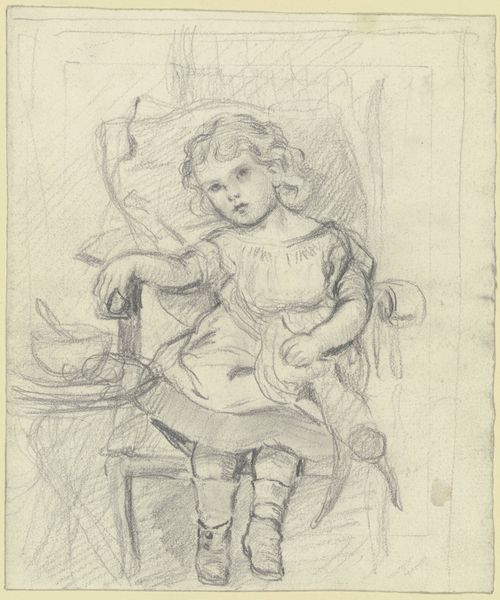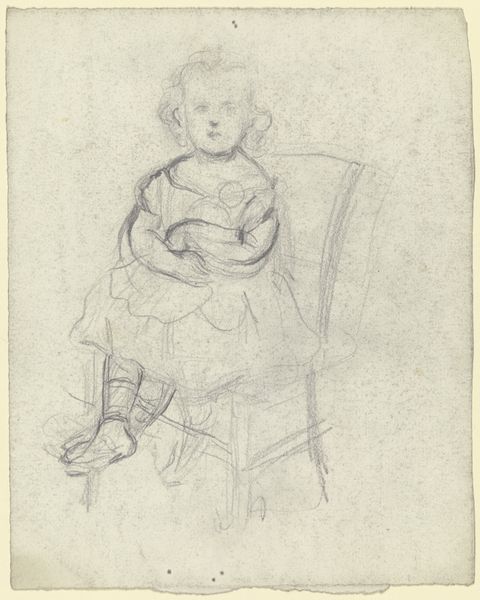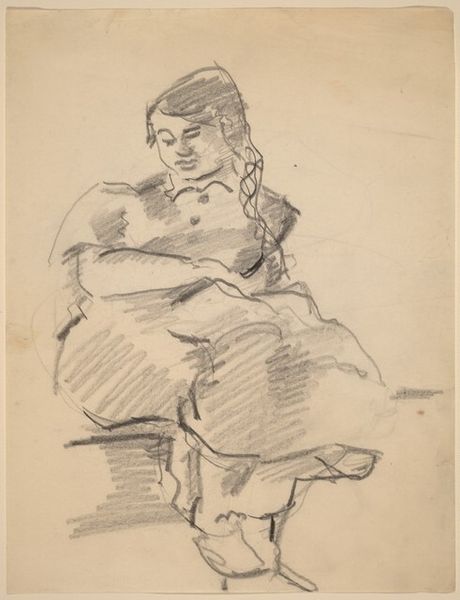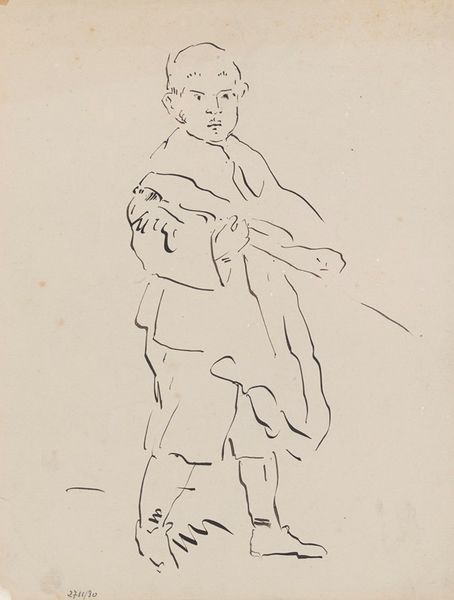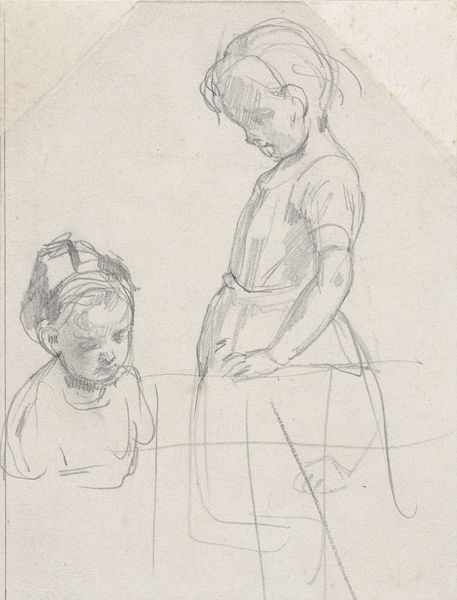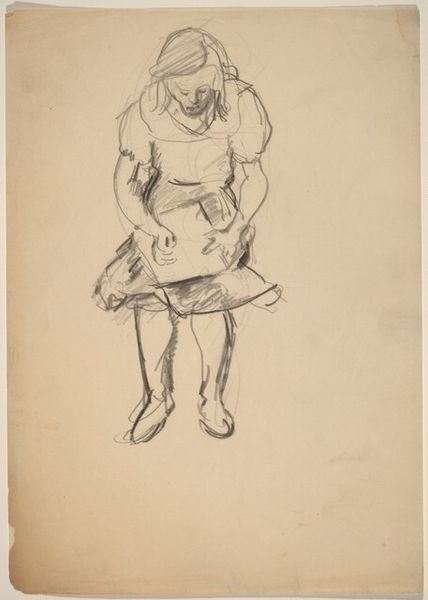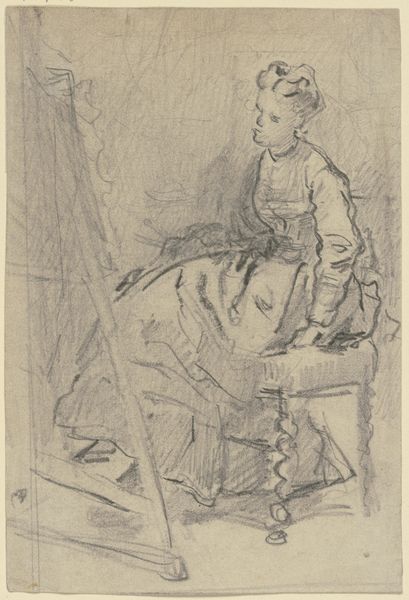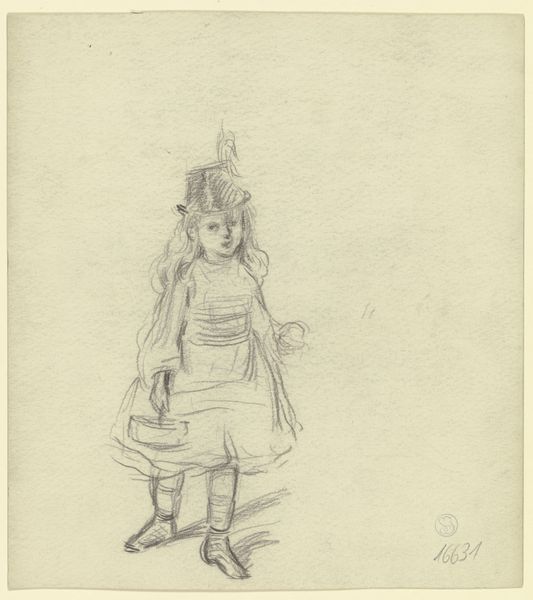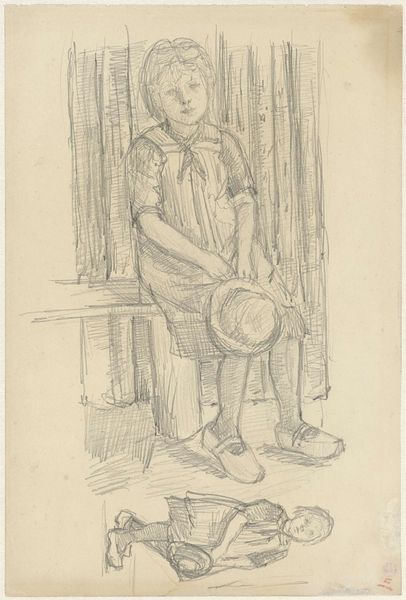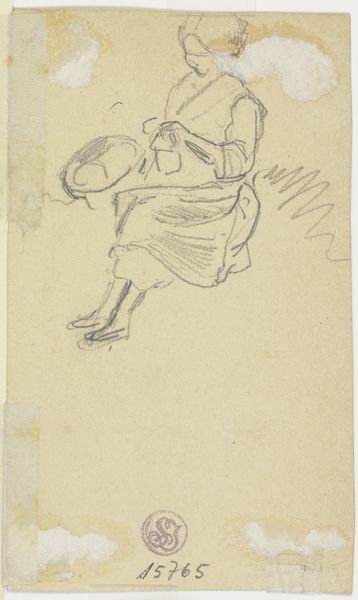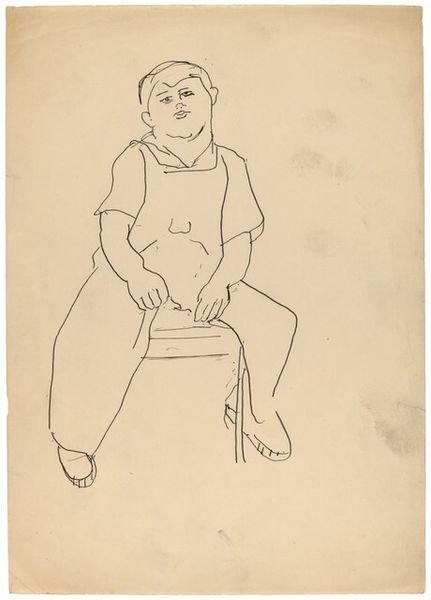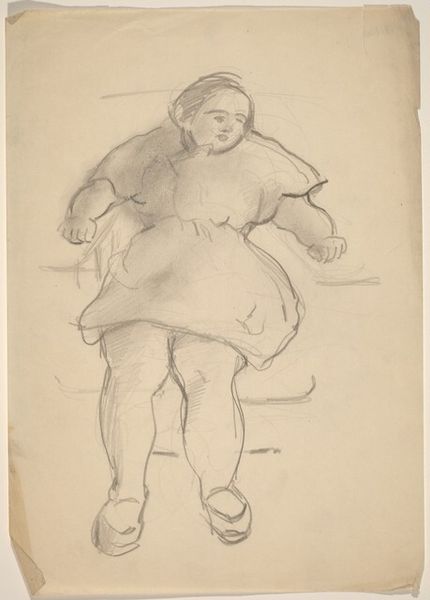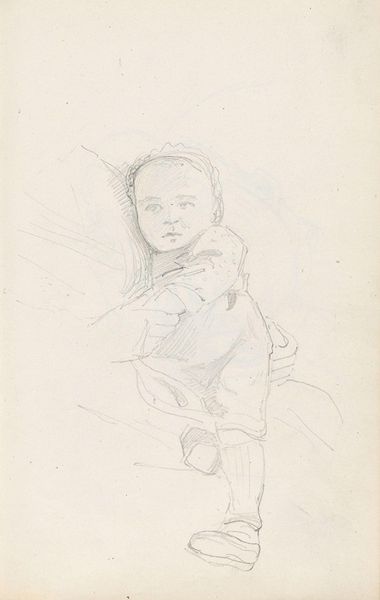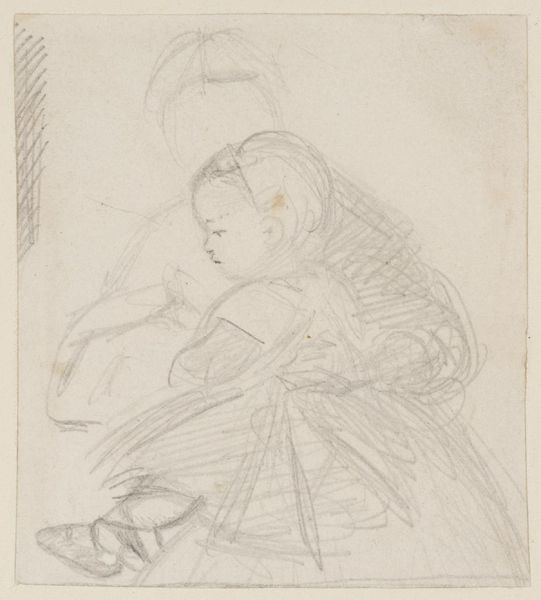
drawing, pencil
#
portrait
#
drawing
#
imaginative character sketch
#
light pencil work
#
quirky sketch
#
pencil sketch
#
figuration
#
personal sketchbook
#
idea generation sketch
#
character sketch
#
pencil
#
sketchbook drawing
#
academic-art
#
sketchbook art
#
realism
#
initial sketch
Dimensions: height 155 mm, width 126 mm
Copyright: Rijks Museum: Open Domain
Curator: August Allebé's "Zittend kind," dating from 1848 to 1927, presents us with a seated child, rendered in pencil on paper, and currently held in the Rijksmuseum collection. Editor: It strikes me as a poignant glimpse into the ordinary, like a paused moment viewed through softened lenses, emphasized by its very light pencil work. Curator: Indeed. The subtle variations in line weight and the shading effectively model the form, giving volume to the child's figure. It is less about capturing a likeness, evidenced by the faceless rendering, and more about exploring the pose and the fall of fabric. Notice how the artist uses a series of lines to capture the essence of the clothing. Editor: I'm interested in that facelessness too. It makes me wonder about the sitter, possibly part of Allebé’s immediate social circle and consider the socio-economic status that granted the subject the leisure for such artistic portrayals, and wonder how it may have involved the garment-making involved in making the clothing. Curator: One might also consider it in the context of academic art; this was perhaps a study piece focusing on form, proportion, and composition rather than capturing an individual's likeness. Editor: I see what you're saying, however the incomplete features give a different character, it highlights the transient and temporal experience of labor and consumption as much as portraying an enduring idealized art. It could hint at initial stages and a reflection of making the whole visible, celebrating the initial stages and means of production, as part of the final artwork Curator: That's an interesting perspective, grounding the work in the materiality of its production. This is a subtle composition using only pencil; its strength lies in how Allebé implies depth with minimal marks. Editor: For me, this seemingly straightforward piece invites complex layers of reflections of an epoch, revealing production, social dynamics, and class distinctions, questioning the definition of "complete" artwork and labor investment as essential materials, even if implicit Curator: Perhaps both readings enhance our experience. It’s through these observations that a simple sketch becomes much more, prompting deeper reflection on academic form and initial stages and transient impressions Editor: Agreed. By questioning boundaries and analyzing its elements from creation process towards cultural statement; it is much richer.
Comments
No comments
Be the first to comment and join the conversation on the ultimate creative platform.
